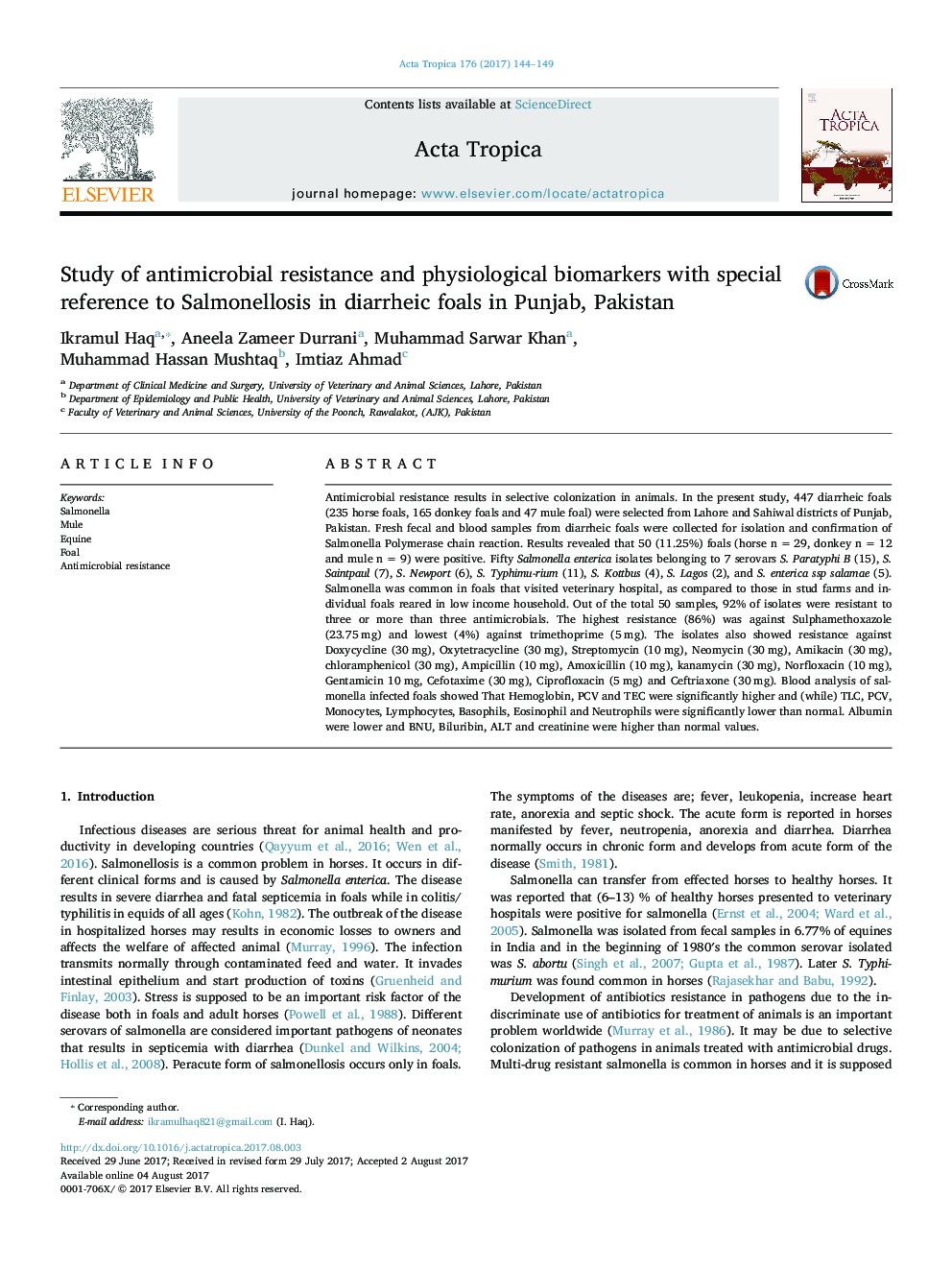| Article ID | Journal | Published Year | Pages | File Type |
|---|---|---|---|---|
| 5671025 | Acta Tropica | 2017 | 6 Pages |
Antimicrobial resistance results in selective colonization in animals. In the present study, 447 diarrheic foals (235 horse foals, 165 donkey foals and 47 mule foal) were selected from Lahore and Sahiwal districts of Punjab, Pakistan. Fresh fecal and blood samples from diarrheic foals were collected for isolation and confirmation of Salmonella Polymerase chain reaction. Results revealed that 50 (11.25%) foals (horse n = 29, donkey n = 12 and mule n = 9) were positive. Fifty Salmonella enterica isolates belonging to 7 serovars S. Paratyphi B (15), S. Saintpaul (7), S. Newport (6), S. Typhimu-rium (11), S. Kottbus (4), S. Lagos (2), and S. enterica ssp salamae (5). Salmonella was common in foals that visited veterinary hospital, as compared to those in stud farms and individual foals reared in low income household. Out of the total 50 samples, 92% of isolates were resistant to three or more than three antimicrobials. The highest resistance (86%) was against Sulphamethoxazole (23.75 mg) and lowest (4%) against trimethoprime (5 mg). The isolates also showed resistance against Doxycycline (30 mg), Oxytetracycline (30 mg), Streptomycin (10 mg), Neomycin (30 mg), Amikacin (30 mg), chloramphenicol (30 mg), Ampicillin (10 mg), Amoxicillin (10 mg), kanamycin (30 mg), Norfloxacin (10 mg), Gentamicin 10 mg, Cefotaxime (30 mg), Ciprofloxacin (5 mg) and Ceftriaxone (30 mg). Blood analysis of salmonella infected foals showed That Hemoglobin, PCV and TEC were significantly higher and (while) TLC, PCV, Monocytes, Lymphocytes, Basophils, Eosinophil and Neutrophils were significantly lower than normal. Albumin were lower and BNU, Biluribin, ALT and creatinine were higher than normal values.
